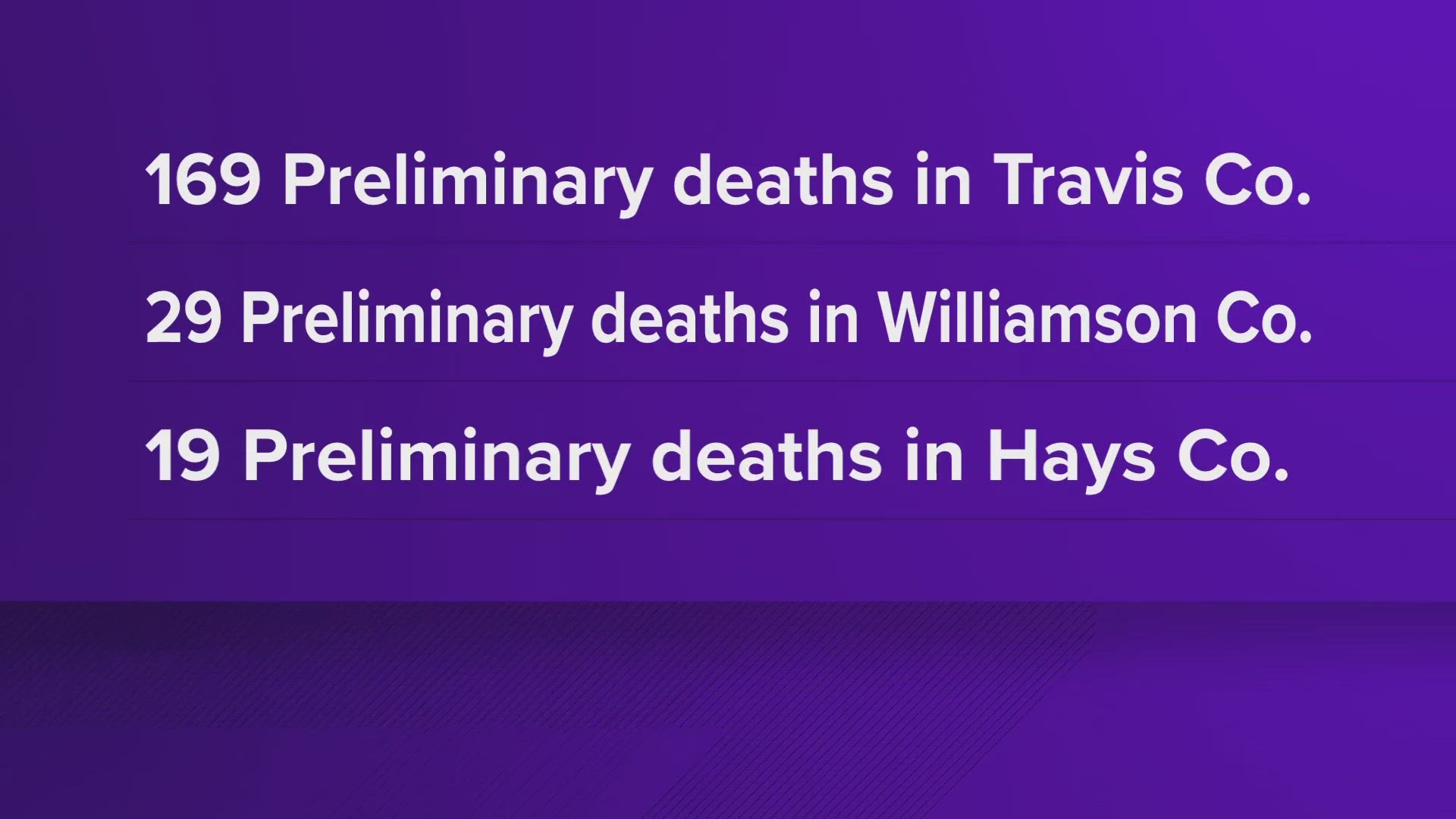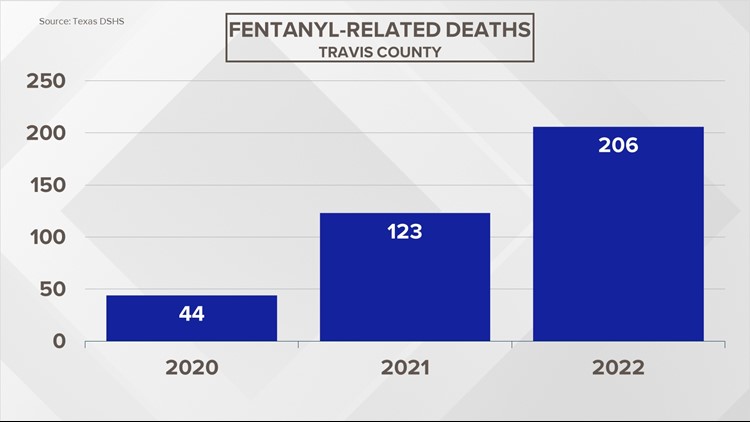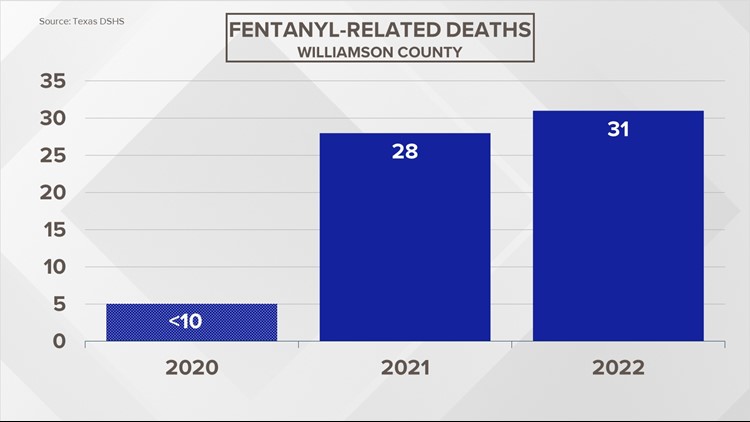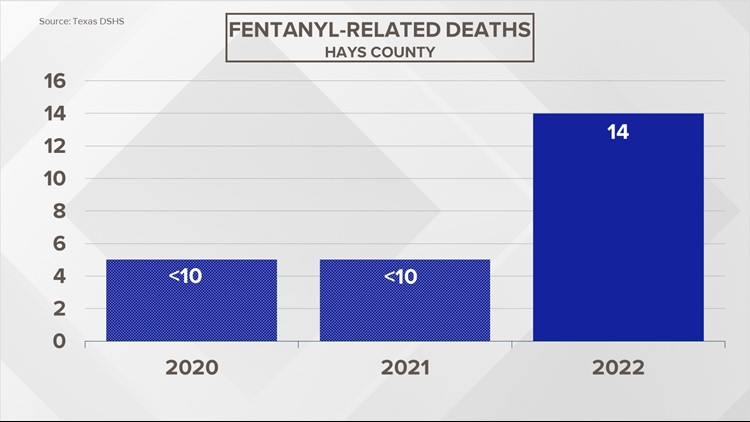AUSTIN, Texas — New state data shines a light on how many fatal fentanyl-related poisonings are happening in Central Texas.
The new data from the Texas Department of State Health Services (DSHS) shows the number of fatal fentanyl-related overdose poisonings in Texas counties last year. The DSHS reports 206 such overdoses in Travis County, 31 in Williamson County and 14 in Hays County in 2022.
DSHS data shows that those numbers have been increasing in all three counties in recent years. In 2020 and 2021, Hays County had less than 10 such overdoses; Travis County had 44 in 2020 and 123 in 2022; and Williamson County had less than 10 in 2020 and 28 in 2021. DSHS doesn't include raw numbers for any amount less than 10.
GRAPHS: Central Texas fentanyl-related deaths 2020-2022
KVUE has recently covered a number of fentanyl-related stories in Central Texas. Earlier this month, an 18-year-old Hays County man was arrested in connection with a 14-year-old girl's fatal fentanyl overdose. In Williamson County, a Georgetown father is raising awareness after his teen son died of a suspected fentanyl overdose.
Last month, Leander High School students put together a "Fentanyl Awareness Week" in an effort to educate their classmates about the dangers of fentanyl. Meanwhile, an Austin mother shared her fight for change after the death of her 19-year-old son.
In his 2023 State of the State address in February, Gov. Greg Abbott listed "fighting the fentanyl crisis" as one of seven emergency items for this legislative session. Also in February, six Texas Harm Reduction Alliance delegations from across the state held a "die-in" on the lawn of the Capitol to call for policy changes to end the overdose crisis.
On Tuesday, March 7, the Texas Senate Committee on Criminal Justice heard public testimony on several filed bills, including two related to fentanyl.
One of those bills was Senate Bill 645, which would increase the penalty for manufacturing or delivery of less than 1 gram of fentanyl from a state jail felony to a third-degree felony. If an individual dies from a fentanyl overdose, the penalty would be enhanced to a second-degree felony. The bill would also put possession of fentanyl with the intent to deliver in the organized crime activity statue and clarifies penalty levels.
The other bill, Senate Bill 1319, would change HIPPA rules to allow the public health authority and police to give overdose information to a governmental entity that would map out where overdoses are happening to help identify overdose spike areas, deploy overdose response and target and secure community resources. The bill states that no personal information about victims would be given to the entity.







